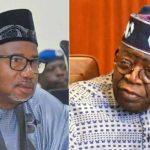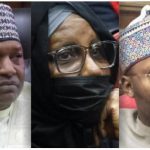River State Under Siege: Unpacking President Tinubu’s State of Emergency Declaration
Dr. Aiyeku Olufemi Samuel
Global Human Capital & Energy Management
The Rivers State saga has taken a dramatic turn with President Bola Ahmed Tinubu’s declaration of a state of emergency in the state. This move has sparked intense debate and raised several questions about the implications for the state, its citizens, and the country as a whole.
The crisis in Rivers State began with a protracted political dispute between Governor Siminalayi Fubara and the state’s legislature. The situation escalated, leading to the demolition of the state’s House of Assembly and the inability of the governor and the legislature to work together.
President Tinubu’s declaration of a state of emergency in Rivers State was made pursuant to Section 305 of the 1999 Constitution. The President suspended Governor Fubara, his deputy, and all members of the state’s House of Assembly for an initial period of six months. Vice Admiral Ibokette Ibas (Rtd) was appointed as the Administrator to take charge of the state’s affairs.
Challenges Ahead
The declaration of a state of emergency in Rivers State raises several challenges:
– *Constitutional Implications*: The suspension of the state’s legislature and the appointment of an Administrator raise concerns about the erosion of constitutional powers and the potential for abuse.
– *Public Safety and Security*: The state of emergency is intended to address public safety and security concerns, but it remains to be seen whether the measures put in place will be effective.
– *Economic Implications*: The crisis in Rivers State has already had economic implications, including the vandalization of pipelines and the disruption of economic activities.
Solutions and Recommendations
To address these challenges, the following solutions and recommendations are proposed:
– *Restoration of Constitutional Order*: The federal government should work towards restoring constitutional order in Rivers State, including the reinstatement of the state’s legislature and the governor.
– *Improved Security Measures*: The federal government should work with the state government to improve security measures, including the deployment of security personnel and the establishment of community-based security initiatives.
– *Economic Support*: The federal government should provide economic support to the state, including the provision of funds for infrastructure development and the support of small and medium-sized enterprises.
– *Dialogue and Reconciliation*: The federal government should facilitate dialogue and reconciliation between the warring parties, including the governor, the legislature, and other stakeholders.
– *Reconciliation and Compensation*: It is essential to reconcile and compensate all aggrieved stakeholders, H.E. Nelson Wike and H.E. Siminialayi Fubara. Without this, the state cannot achieve peace and unity. The federal government should establish a compensation fund to support those affected by the crisis.
The declaration of a state of emergency in Rivers State is a complex issue with far-reaching implications. While the move is intended to address public safety and security concerns, it also raises concerns about constitutional implications, economic implications, and the potential for abuse. To address these challenges, it is essential to restore constitutional order, improve security measures, provide economic support, facilitate dialogue and reconciliation, and reconcile and compensate all aggrieved stakeholders.












